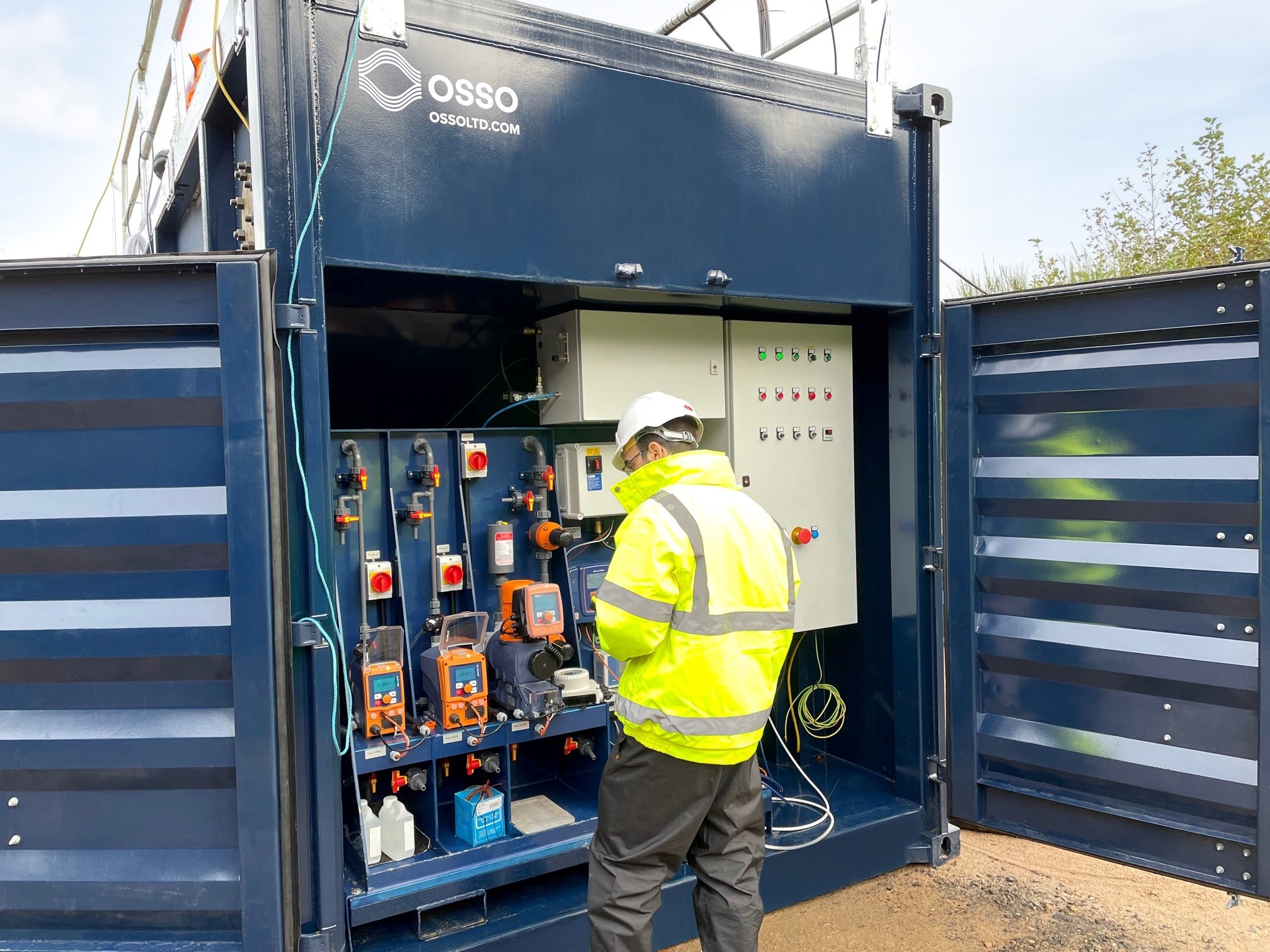Greater scrutiny and accountability may be helping to drive an attitude change in the construction sector when it comes to on-site water management. But is it happening fast enough – and could automated solutions help to accelerate things?
We caught up with Tristan Hughes of specialist provider OSSO to discuss how new treatment alternatives might help companies perform effectively in this area, safeguarding their bottom line and their reputation.
In recent times the importance of wastewater management has become increasingly clear to construction companies. What do you think is driving this?
In general, society has accepted there is a need for significant change across all industrial processes to preserve the environment we live in. With appreciation, grows awareness, and I think people are finally coming to the realisation that not all resources are finite, with clean potable water being one despite abundant rainfall in the UK.
This is coupled with the introduction of new sentencing guidelines in 2014, which resulted in offenders being levied record breaking, multi-million pound fines. Due to these factors, the topic of water management is firmly entering board room discussion where it was once only ever reported when a company was facing regulatory enforcement.
In the wake of COVID 19, there’s been a step change in public perception of the benefits of natural resources such as rivers, lakes, and canals. The public’s newfound commitment to the environment means we now see far more environmental cases against businesses where the initial action has been taken by a member of the public reporting pollution event directly to the regulator. We also frequently see the public pressuring companies to take action on social media forums and shaming those which fail to.
What are the risks for those who fail to take their responsibilities seriously in this area?
For all businesses, economics play a major role and with all decision making comes the question of cost versus risk. Unlawfully polluting a river is a risk and, through lack of knowledge or a variety of other factors, is one that has been deemed by some in the past to be worth taking in order to win work. However, the risk now stretches far beyond getting caught and facing a court appearance.
Environmental failures can significantly impact the EBITDA of a company. Over the last few years, there has been an exponential increase in fines being levied, with judges making use of new guidelines which are designed to remove financial gains companies make without the appropriate mitigation measure in place.
In addition to the fines, there’s the operational costs of standing down while investigations are undertaken, and remedial measures put in place. Another financial implication also overlooked is the ability to win further work, as this is very often compromised at tender stage when contractors request information about previous environmental convictions prior to appointment. Notably by undertaking this due diligence, the contractors are ensuring they meet with their own ESG strategies and preserving their own brand giving a clear insight into the current direction of travel within the industry.
In practical terms how are businesses currently tackling issues around wastewater management?
The industry remains reactive despite the recent indicators that a more proactive approach is a requirement. All too often companies seek assistance at the point of need, expecting a solution to be plucked off the shelf in a similar way to that of ordering pumps and pipework only to find their progress is hindered due to the lack of having the appropriate permits.
Permitting has become a critical pathway and one which should be considered as early as possible within the planning stages. As clients are advising of lead times up to 12 months to even be assigned a case officer, this breeds much frustration at site level. However, if the necessary permits are considered at the planning stage, then unforeseen project delays can be avoided altogether.
How can businesses improve in this area and what role does technology have to play?
To meet with inland water discharge criteria there is very often a requirement to pre-treat the waters with chemical regents, such as coagulants and flocculants. This requirement means off the shelf permits are not viable, and most sites need to apply for a bespoke permit. For this, companies need to ensure they’re making adequate provisions for both the costs of the equipment in their budgets and the time it takes to obtain a permit in their programme of works.
When chemicals are advocated at point of permit, regulators can become uneasy over concerns of the carryover of chemicals and excess dosing or underdosing. While this might be true of cheap rudimentary systems which promote the use of flocc blocks or impregnated matting, technological advancements have made precision dosing not only economically viable at site level, but it has also simplified the once labour intensive operating process.
OSSO’s WTS20 automated dosing system uses state of the art sensors to monitor the water and uses these measurements to administer the exact amount of reagent required, proportional to the solids. This significantly reduces the risk of under or overdosing and chemical carry over and is a game changer for dispelling regulator fears. I firmly believe this will become a standard requirement and am proud that we are at the forefront of this transition. A full evaluation of cost against risk points to this sort of technology becoming the minimum standard going forward.




